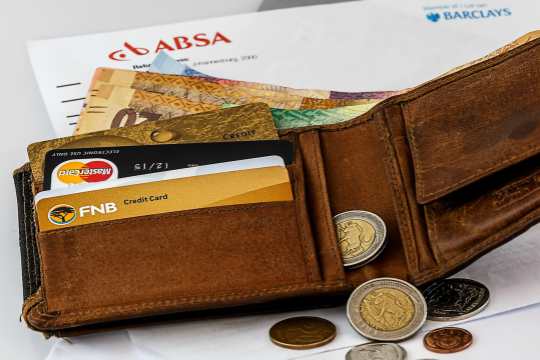Cash or credit cards? There have been many arguments which one of those two payment methods is better and more convenient.
No doubt, in some situations it is better to use a credit card and sometimes we don’t have the other choice but making a payment in a traditional cash way.
So, why would people make such a big deal trying to figure out the best payment method out of those two? Perhaps, both cash and credit cards have their own pros and cons that we’ll try to explain below.
Cash Vs Credit Card: Pros and Cons

1. Credit Card
The future is after technology: a credit card payment method continues to be the most popular non-cash form of retail payments in almost all countries in the world. Not only credit cards give you an opportunity to pay for purchases you can’t financially afford, but also do they offer several other positive points:
Making large purchases
Every time there is an upcoming big purchase, paying with a credit card will make the process fast and easy. You won’t need to save for months for a new TV or a new car – paying with a credit card will give you a chance to spread the cost equally over a longer period;
Developing your credit score
Credit cards help you build a credit score that you can later use if you will think about getting loan help in Canada or in many other cases when there is a need to turn to lenders or banks;
Ability to track your expenses
Every payment and money transaction is archived in your credit card history, so you can always look up at your statement and learn where the money goes. No need to save receipts;
Receiving rewards
If credit cards holders are never late in payments while actively using their card, you they get some really nice bonuses like cash back service when buying gas or even a free airline ticket. This option depends on different bank offerings;
Keeping money safe
Credit cards are just a piece of plastic so in case your wallet is stolen, you can freeze the account, get a new card and not even lose a penny. On the other hand, if you kept physical money in a wallet, the only thing you can do is to pray for it to be found (no one can guarantee the money is still going to be in there).
Even if you are completely satisfied with the advantages credit cards provide to their owners, don’t rush switching to a cashless way of living. There are drawbacks. For instance, with credit cards, it’s easier to overspend and lose control of your expenses. By using a credit card you apply for a credit, but in case of late monthly payments, you’ll end up with a lower credit score. Herewith, credit cards can surprise you with unexpected credit card fees and higher interest rates in case you don’t pay in time.
Who should use credit cards and when?
Bringing it all together, here is when using a credit card can provide you with more positive rather than negative outcomes:
- Use credit cards when you hunt for different incentives, discounts and other rewards from your bank;
- Turn to credit cards if you want to improve your credit score. This is indeed one of the simplest ways to build a good credit score provided you make regular payments;
- Finally, credit cards offer extended warranty protection on expensive purchases at no cost, so it really makes sense to pay with a credit card to get a free insurance.
2. Cash
So, apparently, people prefer using cash over credit cards. A Bank of Canada report proved this fact: it stated that in 2015, cash payments made up the majority of transactions at 51 percent, while credit cards ended up the least preferred option at 19 percent (after debit cards at 31%). Do Canadians like the feel of money in their hands or does cash have its own good benefits? Well, the reason can be the following pros:
Everywhere accepted
Cash is accepted all over the places, perhaps the only exception is Internet shopping where accepting cash is just physically impossible;
Keep Eye on Spending
You see how much money you own and what your spending limits are;
No Over charges
No interest and fees. So no worries about late payments or low credit score;
Helps to Avoid Debt
No risk to fall into a debt;
It’s safe
All right, we talked about the safety of credit cards but from a different perspective. Some people stay away from credit cards because they are afraid some personal information will be leaked.
So, when it comes to cash, you are likely to be more attentive to the money you carry around. No one can recover it in case of loss. If you keep track of your budget, there will always be a need to save receipts or write down expenses, which is a very inconvenient option compared to account statements. Yet, you can make use of various free apps that will help control your budget. Finally, say goodbye to online shopping unless of course, you own a debit card.
Who should use cash and when?
Clearly, cash is suitable for everyone even if you are friends with new technologies and can substitute cash with modern online. After all, how will you pay for cookies sold by girl scouts or make donations at a charity event you came across on the street? Plus, cash is a good option for shopaholics and people who have problems with self-discipline.
Summary
So, what do you stand for now: paper or plastic? Both of these payment methods have essential benefits and drawbacks, so it always comes down to a person’s priorities. The final decision depends on you: you should weight all the pros and cons and choose on your own. Meanwhile, none of these two methods is going to lose its relevance, at least for the next decade or so.
Author Bio: Helen Hepburn is an experienced writer working for Northnloans and a blogger that covers important issues related to financial education and budget managing.
















